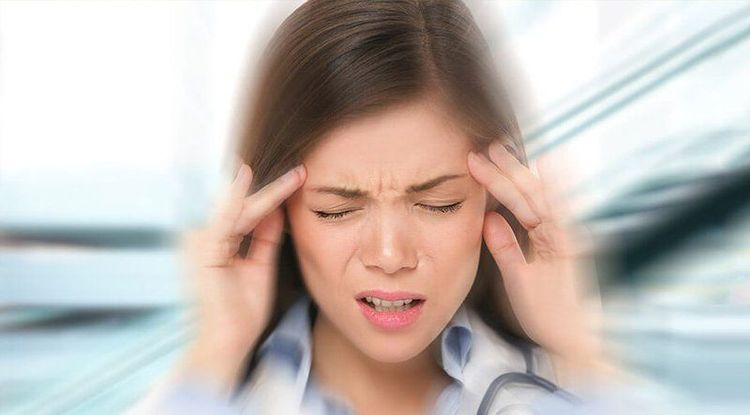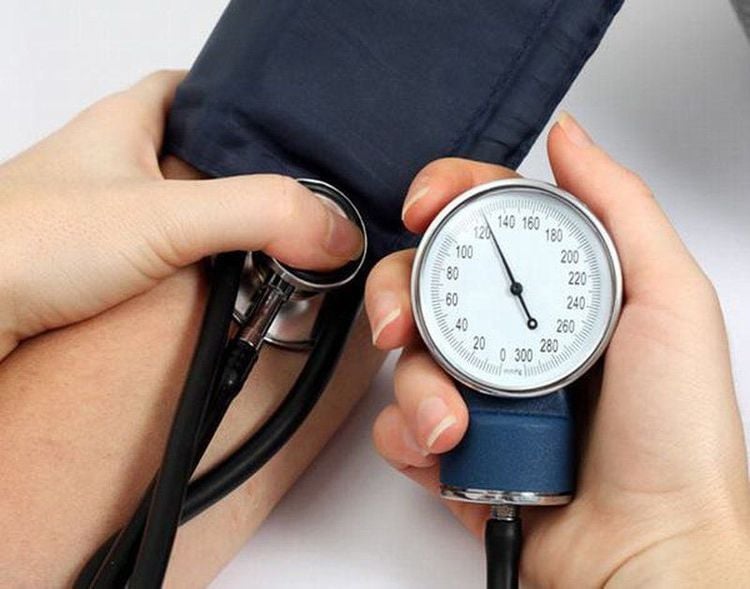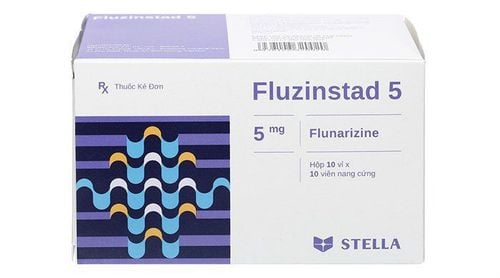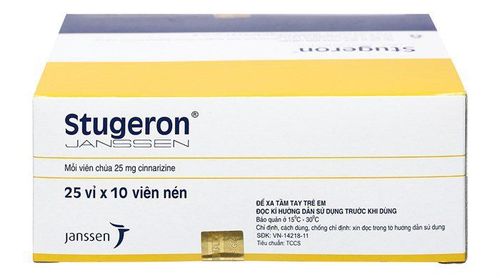This is an automatically translated article.
Article by Master, Doctor Nguyen Thi Minh Phuong - Department of General Internal Medicine - Vinmec Times City International Hospital
The doctor will prescribe based on each specific cause and dizziness in the patient. During an attack of vertigo, the patient may also have other symptoms such as ringing in the ears, feeling of fullness in the ears, nausea or vomiting, sweating, palpitations, anxiety and panic...
1. What is vertigo?
Dizziness is the feeling (hallucination) that everything or the environment around you is moving / spinning. Dizziness is a symptom, common in certain diseases, for example, inner ear disease, encephalopathy, or sensory nervous system disease.
In the case of vertigo, the patient may also have other symptoms such as ringing in the ears, feeling of fullness in the ears, nausea or vomiting, sweating, palpitations, anxiety and panic...

Bệnh nhân bị chóng mặt kèm theo cảm giác đầy trong tai
2. Types of Dizziness
There are two types of vertigo: peripheral vertigo and central vertigo.
Peripheral vertigo accounts for about 80% of cases. The cause is often related to disorders/abnormalities in the inner ear. Central vertigo accounts for 20% of the time and is often associated with pathology involving the brain stem, or cerebellum.
3. Causes of dizziness
Causes of peripheral vertigo such as: labyrinthitis, vestibular neuritis, nerve tumor VIII, otitis media, Meniere's disease, paroxysmal benign vertigo... Causes of dizziness Central: Hemorrhagic stroke or cerebral infarction, especially in the brain stem and cerebellum, brain tumor, cerebellar pontine cyst, multiple sclerosis, traumatic brain injury... In addition, dizziness It can also be accompanied by some other diseases such as: Migraine headache, ataxia, low blood pressure, neurosyphilis ...

Chóng mặt thường đi kèm triệu chứng tụt huyết áp
4. Treatment of dizziness
The doctor will prescribe based on the specific cause and condition of the disease. Antibiotics or antivirals are indicated for cases of otitis media/inner ear infections caused by bacteria or herpes viruses.
Medications to treat symptoms:
Antihistamines: These drugs inhibit Histamine, a transmitter in the brain. Some commonly used drugs such as Meclizine hydrochloride (Antivert), Diphenhydramine Hydrochloride, Promethazine (Phenergan), Cinarizin, Betahistine (Betaserc) Anticholinergics: Dimenhydrinate (Dramamine) and Amitriptyline (Elavil) are drugs that have both anticholinergic effects. , and has anti-histamine effects. Antiemetics: metoclopramide, meclizine, prometazine. Sedatives: seduxen, diazepam, Lorazepam (Ativan).

Bác sĩ kê đơn thuốc điều trị chóng mặt dựa trên tình trạng bệnh
Ca blockers: Flunarizine, cinarizin, verapamil. Diuretics: Acetazolamide may be considered for treatment in Meniere's disease. Corticosteroids: Used in neuritis VIII and Meniere's disease. Acetyl-leucine: brand name is Tanganil, effective in treating acute vertigo, but the mechanism of action is unclear. Ginko Giloba and Piracetam : Two drugs are effective in the treatment of both peripheral and central vertigo. Giloba enhances cerebral perfusion and peripheral vestibular system, while Piracetam acts on the vestibular nucleus and oculomotor nucleus in the brain stem. Surgery: The surgical method is indicated in cases of neuroma VIII, brain tumor, cerebellar pontine tumor or benign paroxysmal vertigo unresponsive to medical drugs...
Hospital With a system of facilities, modern medical equipment and a team of experts and doctors with many years of experience in neurological examination and treatment, patients can rest assured to visit Vinmec International General Hospital. examination and treatment at the Hospital.
To register for examination and treatment at Vinmec International General Hospital, you can contact Vinmec Health System nationwide, or register online HERE.
MORE
What is benign postural paroxysmal vertigo? The relationship between dizziness and blood pressure Central and peripheral vertigo: What you need to know













